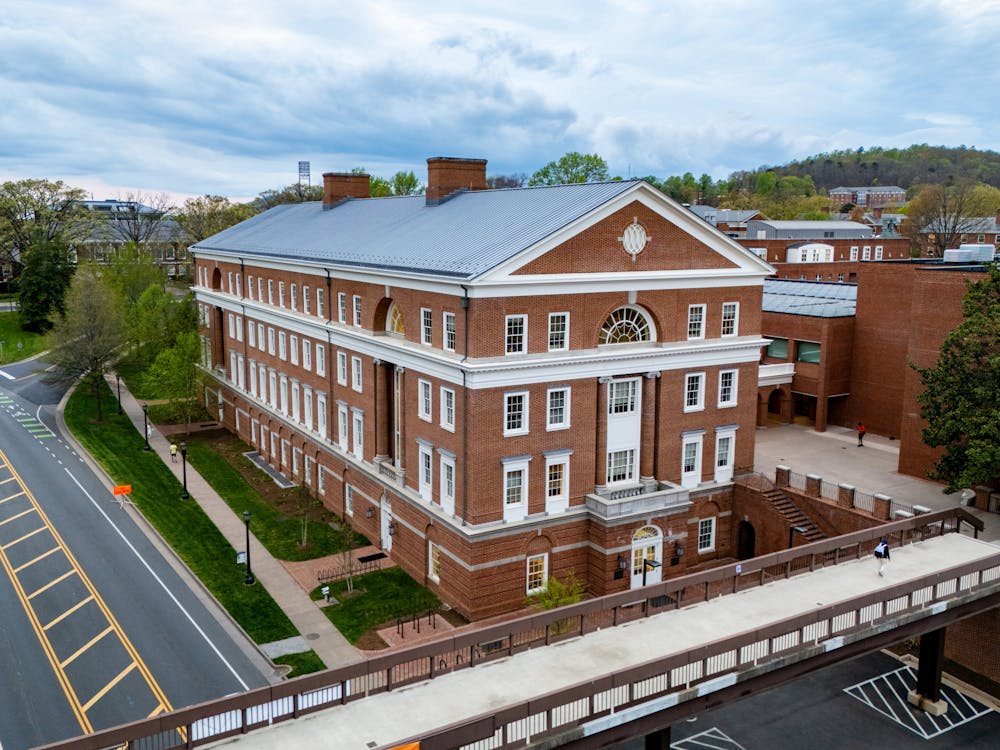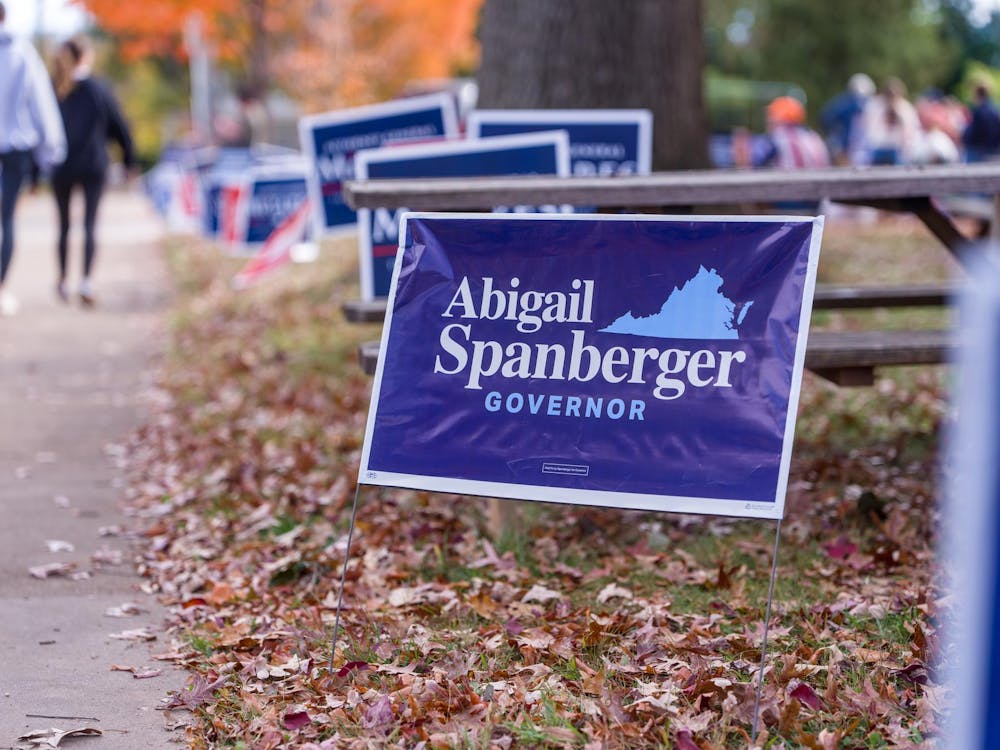The University’s Office of Diversity, Equity and Inclusion is facing scrutiny from two online news publications after OpenTheBooks — a nonprofit organization dedicated to government transparency — reported that the University currently has 235 DEI-related employees, totalling $20 million in University spending. The University contests this report, claiming that these numbers are highly inflated.
The University’s DEI office provides several resources and programs, including the Equity Center, which works to redress racial and economic inequalities, the Diversity Council, where elected representatives discuss strategies for making the University a more welcoming environment, and resource groups for Black, LatinX and veteran employees to help recruit, mentor and support staff members in each of these identity categories.
The office also says they organize learning programs on defining equity, navigating implicit bias and finding a sense of belonging at the University.
After OpenTheBooks published a report of DEI spending and a list of DEI employees at the University, both the Jefferson Council — a conservative alumni group dedicated to the preservation of Thomas Jefferson’s legacy — and the New York Post, a conservative-leaning daily tabloid, criticized the University for spending too much tax-payer money on DEI initiatives.
The Jefferson Council republished an article by OpenTheBooks CEO Adam Andrzejewski which refers to the University’s DEI office as an “extravagance on the taxpayer’s tab” and alleges that University spokesperson Brian Coy “misled” national media in multiple statements by underestimating the true number of DEI staffers.
However, according to Coy, one point of discrepancy between the OpenTheBooks report and the University’s statistics is that the report labels all DEI-related employees, whether they are part-time employees, summer interns or tenured professors in addition to DEI staffers, as full-time DEI employees. Coy described the calculations of DEI employees as “a tricky analysis,” stating that there are many DEI staffers that have dual roles at the University which was not adequately factored into the OpenTheBooks report.
“They just straight up misclassify more than 100 positions [at the University] … [such as] University ombuds, sexual violence investigators, bias investigators [and] trauma counselors at the Women's Center,” Coy said. “These are all incredibly important positions. They're just not DEI positions, and I don't think anybody who's approaching this in an intellectually honest way would think that they are.”
It is not just the amount of DEI positions that is being contested. The New York Post also criticizes the salary of top-level DEI employees, comparing Chief Global Diversity Officer Martin Davidson’s salary of $451,800 plus benefits to Gov. Glenn Youngkin’s salary of $175,000. Citing Andrzejewski, the article alleges that it takes the tuition of 1,000 undergraduate students to pay the base salary of DEI employees.
According to Coy, the University DEI office consists of 55 full time employees with an annual spending of $5.8 million, numbers that were shared with the Board of Visitors as the official total in June 2023. Further, Coy said that OpenTheBooks did not speak to the University before publishing the results of their findings.
“[OpenTheBooks] was a group who published this report without asking [the University] any questions at all about how we classify employees,” Coy said. “They picked a number, and they published it in the media and they were wrong."
James Bacon, executive director of the Jefferson Council and founder of political blog Bacon’s Rebellion, published an article which applauds the OpenTheBooks report and asserts that an excessive fixation on “equity” across categories such as race and gender permeates across all areas of the University.
“While Open the Books has been fully transparent, going so far as to publish a list of the employees, titles and salaries it is counting, U.Va. has not reciprocated with a list of its own,” Bacon said. “The size and cost of the DEI bureaucracy only scrapes the surface … the fixation on race, sex and gender intrudes into every school and college, every department and every administrative office.
According to Bacon, the Jefferson Council does not take issue with the goals of diversity or inclusion, but considers equity at the University to be too focused on specific categories of identity, such as race and gender. Bacon said that the concept of equity at the University serves to divide students into different categories based on their minority status.
“We say that U.Va. should be welcoming everybody, but we have huge problems with dividing people into identity buckets, and we feel that it doesn't,” Bacon said. “The emphasis on DEI is more to push people apart and alienate people than to bring them together and create a common identity.”
Another contested claim made in the Jefferson Council article was that the University supports a $1 billion long term plan for rectifying structural racism with the Racial Equity Task Force, which is designed to provide recommendations for addressing systemic racism at the University. Bacon could not confirm the accuracy of this number or how it was calculated.
Despite these assertions, Bacon states that the Jefferson Council has taken no position on what should happen to DEI, and that the future of DEI should be left to the Board of Visitors. He said, however, that the DEI Department lacks any tangible end goal for its services.
“There is a huge bureaucracy that has no clear aims, no clear goals [and] no clear point in which they can say that our job here is done … and no metrics for progress,” Bacon said. “It's just this big blob and [it has] become just a mechanism within the University for just propagating the intersectional oppression ideology.”
Conversely, Oliver Lesher, fourth-year College student and LGBTQ Center volunteer, said he does not think that the University is spending too much on DEI resources. Instead, Lesher said he is in favor of the University DEI Department’s mission and services, claiming that DEI provides resources for all students regardless of race, gender or sexuality.
“When we view DEI as something that's for a small group of students, we are drastically under estimating the capacity that DEI and DEI centers have had on the entire student body of the University,” Lesher said. “This University is slowly but surely becoming a better place for all students, and that change is something that many organizations, including the Jefferson Council, need to reckon with.”
Despite the recent controversies, McDonald said that neither the OpenTheBooks report nor the scrutiny of the Jefferson Council and New York Post have caused any noticeable changes to DEI programming at the University.
“As a team, I think we just remain steadfast in our commitment to doing this work and serving the communities and constituents that we serve,” McDonald said. “And I think we're going to stay on that path until we're told otherwise.”
CORRECTION: A previous version of this article incorrectly stated that the University's DEI office is a subdivision of the School of Education and Human Development. The University has its own DEI division which is the subject of this article. The article has been updated to reflect this fact.







